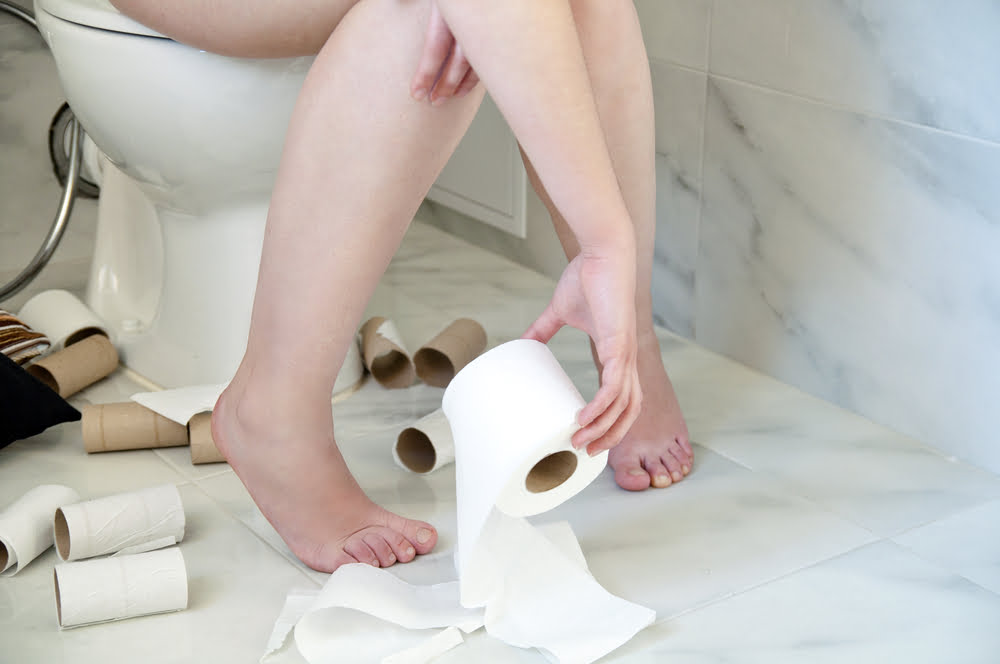 What is Diarrhea?
What is Diarrhea?
Diarrhea refers to the condition in which stools (aka faeces) are discharged from the bowels frequently and in “loose” or liquid form. It is a common condition which is usually not serious and only lasts a couple of days. If, however, it continues for weeks, this can be a sign of a more serious underlying condition for which professional medical advice should be sought. No matter how long it lasts, it is unpleasant and can be very distressing.
Causes
There are many different things can cause diarrhoea but the most common cause is a viral infection in the gut. Other causes include: allergies to certain foods, medical conditions (eg: diabetes, irritable bowel syndrome, intestinal diseases and some cancers), bacterial infections (eg: food poisoning), medications, alcohol abuse and laxative abuse.
What to Do If You Have It
In most instances, diarrhea will clear up of it’s own accord, so there won’t be a need to consult a doctor. It can be treated with over-the-counter medicines available from your local pharmacy or online. However, if you have watery stools and are using the toilet three or more times a day, failure to drink enough fluids can cause dehydration which can be dangerous if not treated. It is therefore particularly important to ensure that small children and babies do not become dehydrated due to diarrhea.
When to See Your Doctor
If the diarrhea is severe, frequent, long lasting or it comes with the following symptoms, you should consult a doctor:
- Weight loss
- Dark or black stools
- Persistent vomiting
- Blood in the stools
- A continuous or severe stomach ache
- Signs of dehydration including feeling lightheaded, passing urine infrequently, or drowsiness
Diarrhea can be one of the causes of anal itching
Chronic (ie: persistent or ongoing) anal itching can be a symptom of an underlying condition. One of these conditions can be diarrhea because the presence of even a small amount of residual stool can irritate the sensitive perianal skin, thereby causing anal itching. Sometimes however, the cause of an itchy anus may not be able to be determined. This is known as “idiopathic pruritus ani”.
Gastrointestinal infections (infections of the digestive tract caused by bacteria, viruses or parasites) can also cause anal itching. Other causes of anal itching include:
- Skin conditions such as psoriasis, eczema and dermatitis
- anal fistulae and anal fissures
- piles (aka hemorrhoids)
- sphincter incompetence
- long-term constipation
- kidney failure
- diabetes
- overactive thyroid
- iron deficiency anemia
- medications, such as chemotherapy or long term use of anaesthetics or corticosteroids
In some rare instances anal itching can be a symptom of cancer such as bowel or rectal cancer.
Treatment of Anal Itching
There are various ways to treat pruritus ani depending on the diagnosis. These include:
- Adopting good anal hygiene practises (clean, but do not “over-clean”)
- Using plain water to wash the area
- Using a topical anti-fungal steroid cream such as Dermoscribe’s Ichybum cream (see: www.dermoscribe.com/product/ichybum/)
- Using only alcohol- and fragrance-free soaps and disposable wipes (see: www.dermoscribe.com/ichybum-shop)
- Avoiding skin trauma through scratching or using dry toilet paper
- Over-the-counter bowel medications to thicken the stool to help minimise leakage
- Avoiding foods that cause anal itching.
This simple advice should help you put an end to this annoying and embarrassing problem. Of course, if symptoms persist, you should consult a qualified healthcare professional
